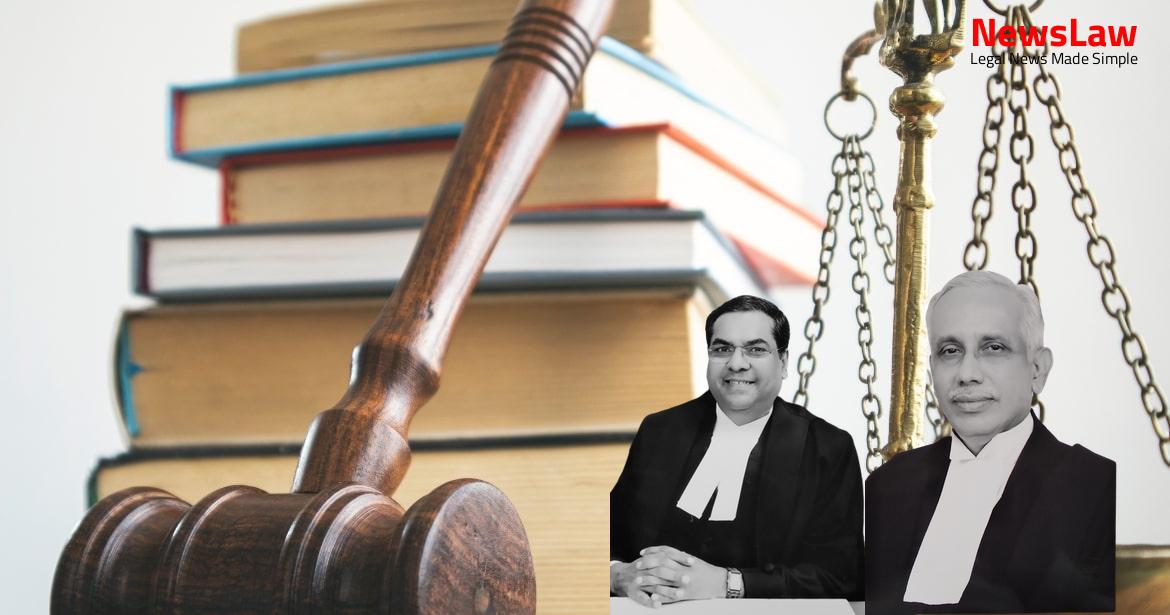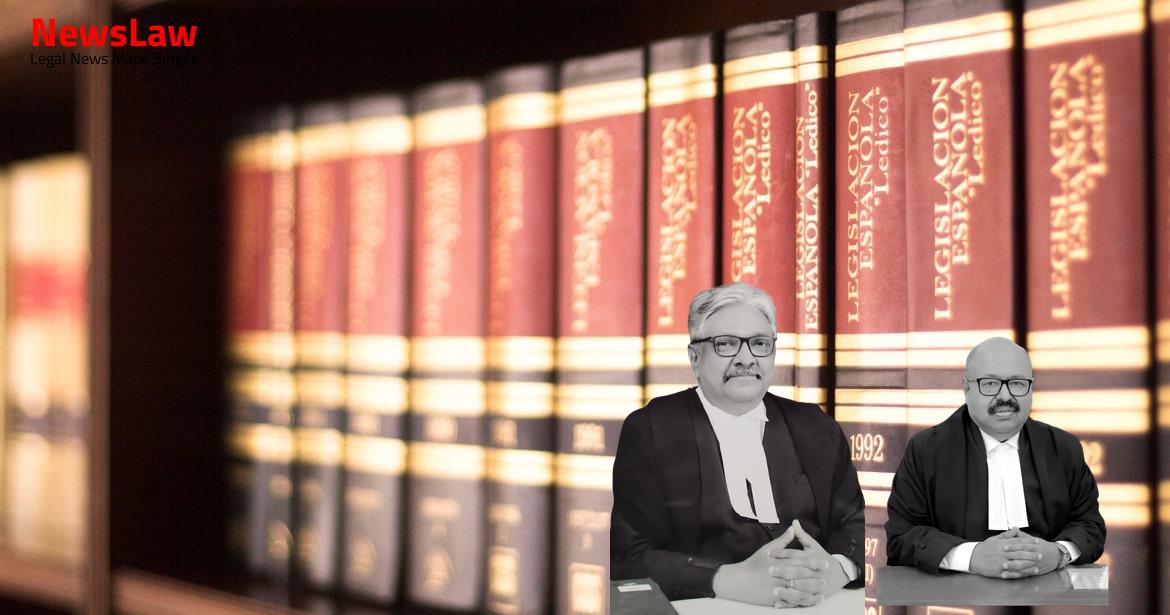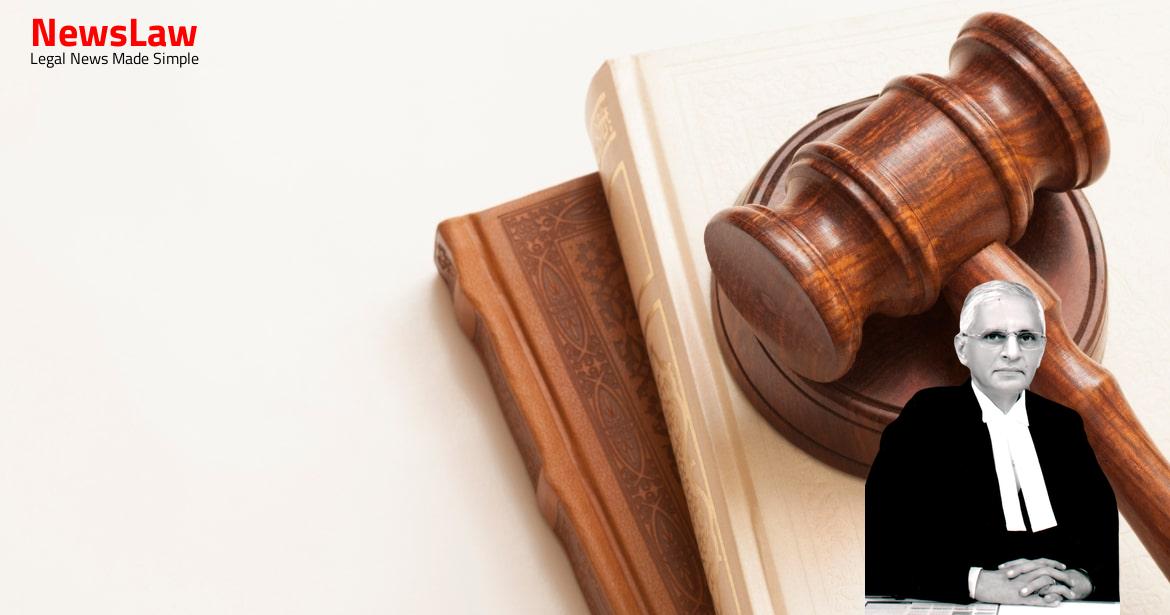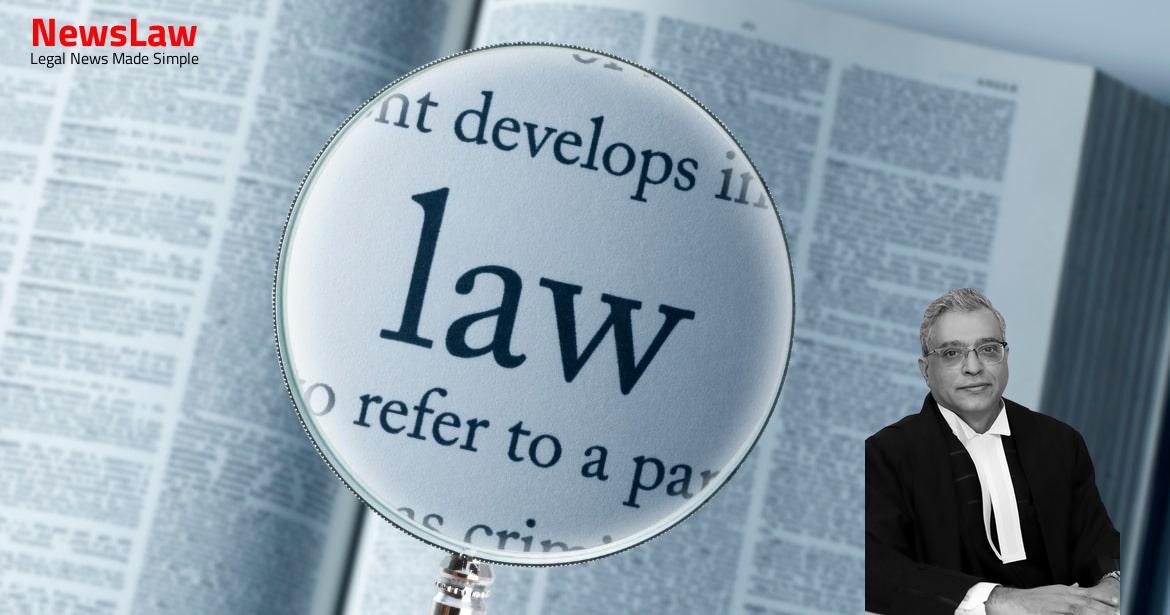In a significant legal development, the Supreme Court of India recently issued a ruling on a land title dispute case involving the plaintiffs Abdur Rahman and others against the defendants Athifa Begum and others. The High Court judgement has been overturned by the Supreme Court, marking a pivotal moment in the long-standing legal battle. Stay informed as we delve deeper into the implications of this landmark decision.
Facts
- Plaintiffs filed Appeal No 2 of 2003 before Additional District Judge, West Tripura, Khowai.
- Appellants in this appeal were defendants in suit T.S. 10 of 2000 at Civil Judge (Junior Division) Khowai.
- Plaintiffs sought declaration of their title, recovery of possession, and mesne profits in the suit.
- Trial Court dismissed the suit on 19.08.2002.
- Leave was granted for the appeal.
- The plaintiffs were declared as owners of the suit land by the High Court.
- The judgment and decree of the Trial Court was set aside.
- The appeal by the defendants was dismissed on merits by the High Court.
Also Read: Illegal Sand Mining Case: Supreme Court Judgment
Issue
- The issue at hand is whether the High Court was justified in dismissing the second appeal on its merits.
- The key question is whether the absence of the appellants’ counsel during the appeal hearing affected the decision.
- It needs to be determined whether the appellants were significantly disadvantaged by the absence of their counsel during the appeal proceedings.
- An important consideration is whether the appellants had adequate representation or legal assistance during the appeal process.
- The High Court’s decision to dismiss the second appeal without the presence of the appellants’ counsel raises concerns about procedural fairness and the right to legal representation.
Also Read: Validity of Will: Harbans Lal vs. Surinder Pal Sharma
Arguments
- Learned counsel for the petitioner argued that Order XLI Rule 17(1) of the CPC supports the contention.
- The only contention raised by the appellants’ counsel was that the High Court should not have dismissed the appeal in the absence of the appellants’ counsel.
- The argument was in support of the petitioner’s case and against the judgment of the High Court.
Also Read: Interpretation of Government Premises in Eviction Proceedings
Analysis
- Order 41 Rule 17(1) of the Code of Civil Procedure states that if the appellant does not appear, the Court may dismiss the appeal for default of appearance but not on merits.
- Explanation to sub-rule (1) of Rule 17 clarifies that the Court cannot dismiss the appeal on merits if the appellant remains absent on the date of hearing.
- Prior to 1976, conflicting views existed among High Courts regarding the interpretation of Rule 17 of Order 41.
- The explanation was added in 1976 to address the conflicting views and clarify that the Court cannot decide the appeal on merits if the appellant does not appear.
- The case of Abdur Rahman and others v. Athifa Begum and others reaffirmed that the High Court cannot go into the merits of the case in case of non-appearance of the appellant.
- The legislature added the explanation to Rule 17 to eliminate any doubts and provide clarity on this matter.
- Prior to 1976, different High Courts in India had conflicting views on the interpretation of sub-rule (1) of Rule 17 of Order 41 CPC.
- The legal position was clarified in the case of Ghanshyam Dass Gupta v. Makhan Lal.
- The case reiterated the importance of understanding the purport and meaning of sub-rule (1) of Rule 17 of Order 41 CPC.
- Explanation to sub-rule (1) of Rule 17 of Order 41 CPC added by Act 104 of 1976.
- Explanation explicitly states that appellate court cannot dismiss appeal on merits if appellant is absent.
- Purpose of Explanation is to give appellant opportunity to provide sufficient cause for non-appearance.
- Appellant must be given chance to convince appellate court of reasons for non-appearance.
- An opportunity is lost if courts decide appeal on merits in absence of counsel for appellant.
Decision
- The order was made in violation of Rule 17(1) of Order XLI of the CPC.
- The appeal has been set aside due to this violation.
- The Court decided the appeal on merits disregarding the adjournment requests made by Mr. Lodh and Mr. Choudhury.
- The impugned judgment and decree of the High Court have been set aside, and the matter has been remitted to the High Court for fresh disposal in accordance with the law.
Case Title: PRABODH CH. DAS . Vs. MAHAMAYA DAS
Case Number: C.A. No.-009407-009407 / 2019



